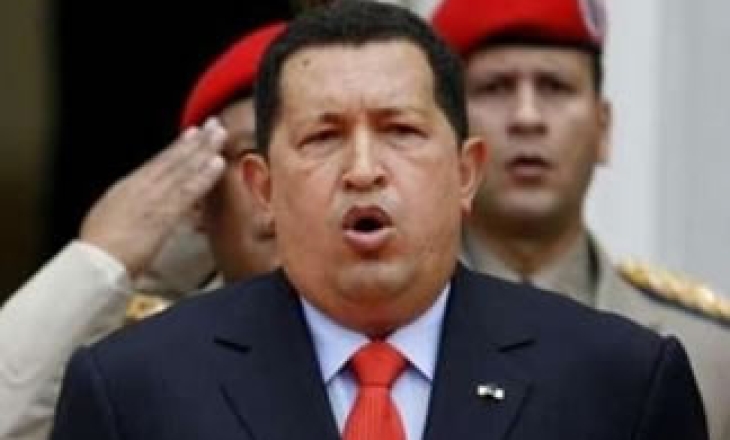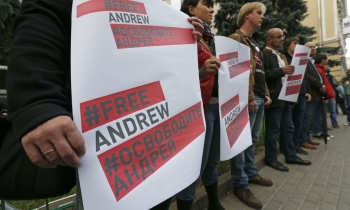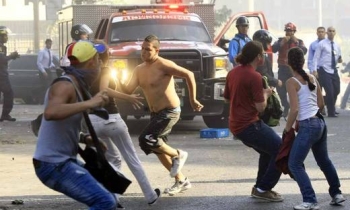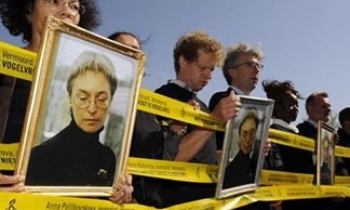Attacks on journalists and media outlets have intensified in the Americas over the past six months. If court cases and judicial rulings against the media are anything to go by, apart increasing violence against journalists, the times are bad for journalists in the region.
Journalists, in fact, continue to be killed in high numbers in the Americas and the vast majority of these murders go unpunished due to state inaction, says a new decade-long study by the Inter-American Commission on Human Rights (IACHR).
Between 1995 and 2005, 157 journalists were killed in 19 countries of the Americas for motives possibly connected to their jobs. As of the end of 2007, only 32 of these cases had resulted in a conviction, says IACHR's Office of the Special Rapporteur for Freedom of Expression.
Five journalists were killed during the past six months: three in Mexico, one in Argentina and another in Honduras. More than 30 were attacked in Peru, and 32 were threatened in Colombia. Paraguay experienced the greatest increase in reports of verbal attacks.
At its mid-year meeting last week in Caracas, Venezuela, the Inter American Press Association (IAPA) paid particular attention to the press freedom situation in its host country, as well as in Cuba and Bolivia—three countries where the government is one of the main perpetrators behind attacks on free expression. The transfer of power in Cuba from Fidel Castro to his brother Raúl did not improve the status of the 25 journalists still in prison or the adverse working conditions of independent journalists.
State-owned media outlets in the region have increased, "clear evidence of new efforts by various governments to control information," IAPA said. In Venezuela and Bolivia, the governments have taken control of several radio and TV stations. IAPA also accused Venezuela of using government-friendly prosecutors and judges to bring trumped-up charges against journalists.
Although IAPA had invited President Hugo Chávez to formally open the conference, he did not attend. Over the same weekend, Chávez supporters opened the "Latin American Meeting on Media Terrorism" to examine what they call slanted coverage of his government and to explore alleged links between media outlets and the US government.
"All efforts by IAPA to open up channels of communication with the government of Venezuela were unfruitful, not only at this meeting but in prior attempts and missions," said IAPA.
IAPA also detailed some of the more subtle threats to freedom of expression in the region, from court cases being used to silence journalists in Brazil to governments continuing to reward "friendly" newspapers with lucrative government advertising contracts in Argentina.
According to the IACHR study, investigations into these murders have proceeded at an excessively slow pace and most of the investigations show serious deficiencies in the way they are conducted. Of the 32 cases in which there has been some type of conviction, the sentence has not always been put into effect, nor have all those responsible for the crime been punished.
The largest number of murders took place in Colombia, with 75 reporters killed. Only seven of those cases resulted in a conviction. Brazil followed, with 23 journalists killed, with nine convictions. Not far behind was Mexico, with 20 reporters murdered and only four convictions.
The Office of the Special Rapporteur for Freedom of Expression is demanding that the members countries of the OAS give the "highest political priority to addressing and resolving the state of impunity surrounding the murder of journalists," from in-depth investigations into the cases and effective punishment for the perpetrators, whether they are state agents or private individuals.
"We are aware than many of the murders could be tied to drug trafficking, other forms of organised crime, paramilitary forces, and dissident armed groups," says Special Rapporteur Ignacio Álvarez. "However, it falls to the states to investigate and punish those cases through their courts and other competent entities. Impunity is the responsibility of the states," he says.










